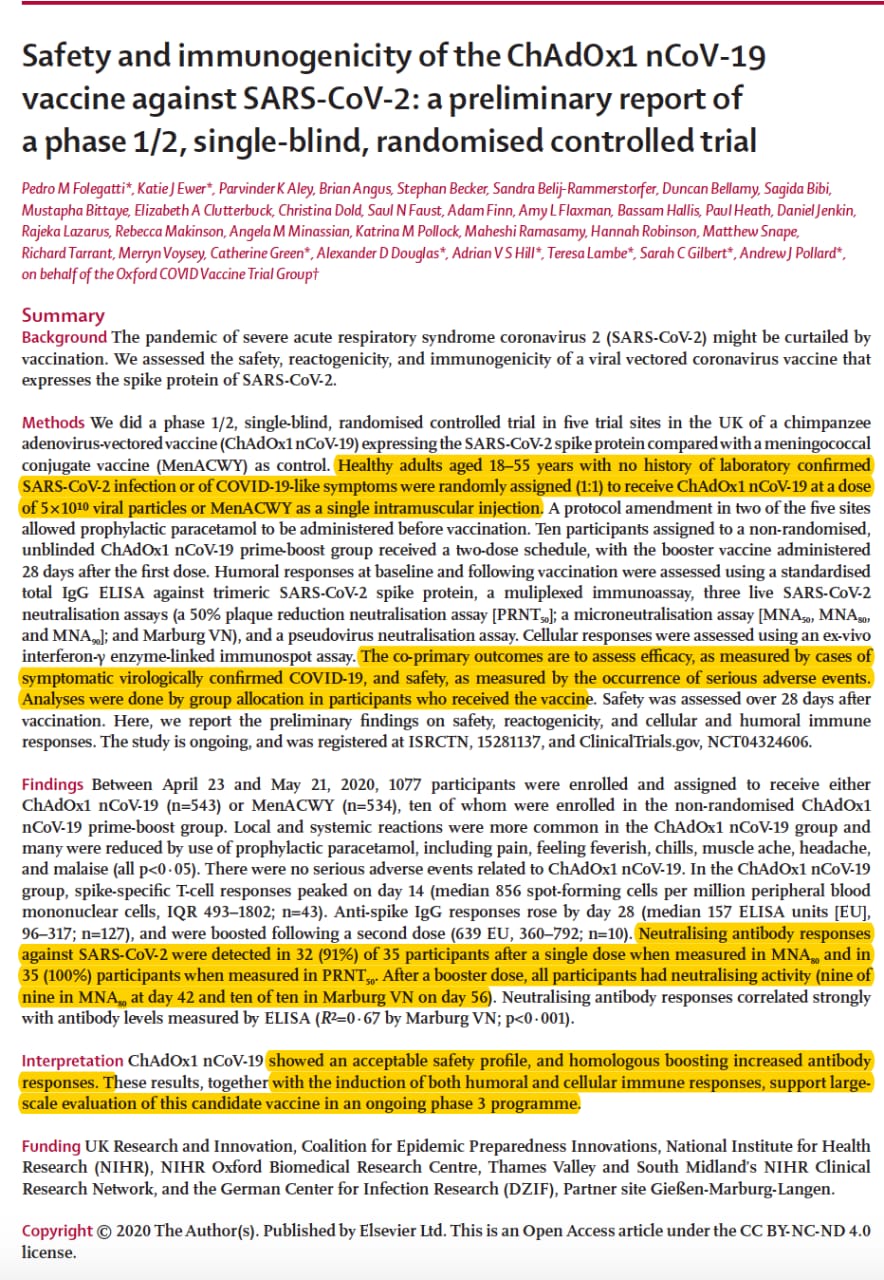A preliminary report of phase 1/2 of the ChAdOx1 nCoV-19 vaccine candidate from the University of Oxford showed promising results in early human testing.
It showed healthy adult participants had strong antibody and T cell immune responses up to 56 days in the ongoing trial.
The trial was conducted between April 23 and May 21, 2020, in which 1077 participants were enrolled and assigned to receive either ChAdOx1 nCoV-19 (n=543) or MenACWY (n=534), ten of whom were enrolled in the non-randomised ChAdOx1 nCoV-19 prime-boost group.
 Local and systemic reactions were more common in the ChAdOx1 nCoV-19 group and
Local and systemic reactions were more common in the ChAdOx1 nCoV-19 group and
many were reduced by use of prophylactic paracetamol, including pain, feeling feverish, chills, muscle ache, headache, and malaise (all p<0·05). There were no serious adverse events related to ChAdOx1 nCoV-19.
In the ChAdOx1 nCoV-19 group, spike-specific T-cell responses peaked on day 14 (median 856 spot-forming cells per million peripheral blood mononuclear cells, IQR 493–1802; n=43). Anti-spike IgG responses rose by day 28 (median 157 ELISA units [EU], 96–317; n=127), and were boosted following a second dose (639 EU, 360–792; n=10). Neutralising antibody responses against SARS-CoV-2 were detected in 32 (91%) of 35 participants after a single dose when measured in MNA80 and in 35 (100%) participants when measured in PRNT50. After a booster dose, all participants had neutralising activity (nine of nine in MNA80 at day 42 and ten of ten in Marburg VN on day 56). Neutralising antibody responses correlated strongly with antibody levels measured by ELISA (R²=0·67 by Marburg VN; p<0·001).
Earlier, ‘The Lancet’ medical journal has confirmed that it would be publishing early-stage human trial data from the Oxford team on Monday.
David Carpenter, chairman of the Berkshire Research Ethics Committee, which approved the Oxford trial, had said the vaccine team was “absolutely on track”.
“Nobody can put final dates… things might go wrong but the reality is that by working with a big pharma company, that vaccine could be fairly widely available around September and that is the sort of target they are working on,” he said.
The vaccine, named ChAdOx1 nCoV-19, is based on a weakened version of the common cold that causes infections in chimpanzees. It also contains the genetic material of the spike protein of SARS-CoV-2 – the strain of coronavirus that causes the COVID-19 illness.
The Oxford University vaccine is one of more than 100 in development as the novel coronavirus continues to spread – infecting more than 13 million people and killing at least 582,000 worldwide.











